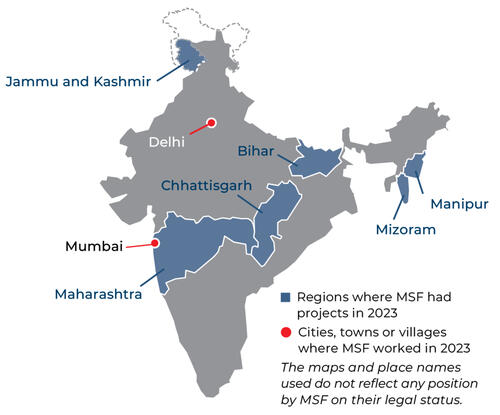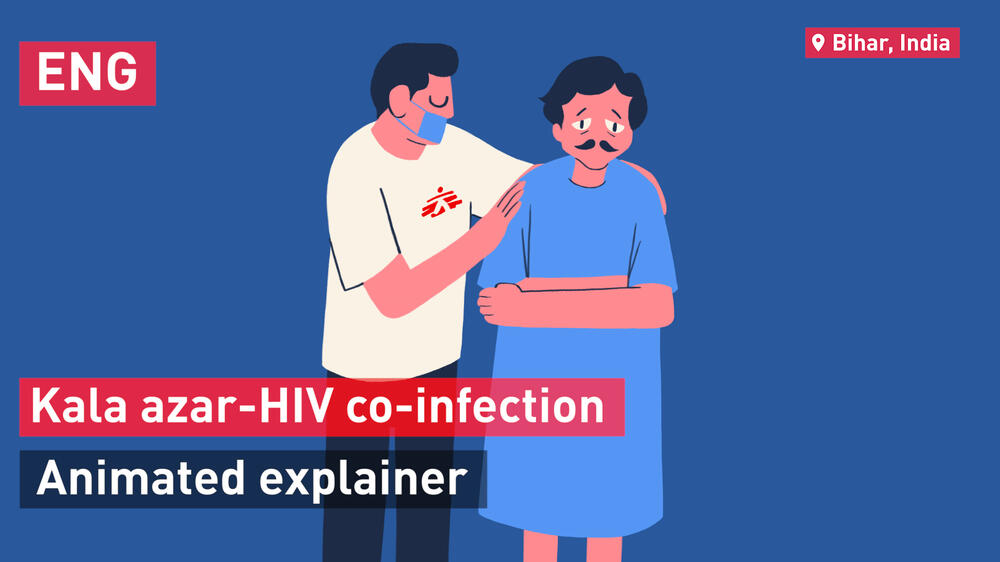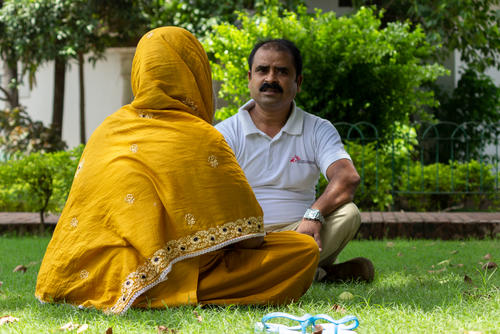In Mumbai, we treat complex cases of drug-resistant tuberculosis and work with health authorities to reduce high tuberculosis incidence and death rates in the area. We also provide comprehensive care to people living with advanced HIV in Bihar, essential healthcare via mobile clinics in remote areas of Chhattisgarh, and mental health services in Jammu and Kashmir.
Our activities in 2023 in India
Data and information from the International Activity Report 2023.
797
797
16.4 M€
16.4M
1999
1999


20,800
20,8
6,440
6,44
830
83

640
64

Explaining kala azar-HIV co-infection
Have you heard of kala azar?
Kala azar is a neglected but potentially fatal tropical disease. India accounts for 30 per cent of cases worldwide.
This short animation explains what kala azar is, how it relates to HIV, and what we are doing in response.
Since 80 per cent of India's kala azar cases are reported in Bihar, we set up a programme there in 2007.
People living with HIV are particularly vulnerable to kala azar, so since 2016 we have been focusing on treating patients co-infected with the two diseases, in partnership with the Rajendra Memorial Research Institute of Medical Sciences (RMRIMS) in Patna, Bihar.
- Try a different country, year, format, or topic.
- Clear one or more filters
Contact us

5th Floor, Okhla NSIC Metro Station Building
New Delhi – 110020
India



